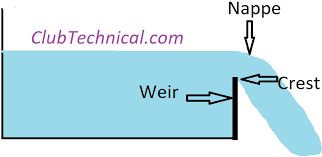New Ideas In Civil Engineering
New Ideas in Civil Engineering
1. Self-healing Concrete
Cement is the most widely used material in construction, but also one of the biggest contributors to harmful carbon emissions, said to be responsible for around 7 percent of annual global emissions.
One major problem is cracking in construction, usually caused by exposure to water and chemicals.
University researchers are looking to develop a self-healing concrete, using a mix containing bacteria within microcapsules, which will germinate when water enters a crack in the concrete, which exact limestone, plugging the crack before water and oxygen has a chance to corrode the steel reinforcement.
2. Photovoltaic Glaze
Glazing integrated photovoltaic (BIPV) can help buildings generate their own electricity, by turning the whole building envelope into a solar panel.
Polysolar is a company is to provides transparent photovoltaic glass as a structural building material, forming windows, facades, and roofs. The grazing material of Polysolar is efficient at producing energy even on north–facing, vertical walls.
3. Kinetic Footfall
Another technology is kinetic energy which is under development that is Pavegen provides a technology that enables the flooring to harness the energy of footsteps.
It may be utilized indoors or outdoors in high traffic areas and generates electricity from pedestrian footfall using an electromagnetic induction process and flywheel energy storage.
The Kinetic footfall is most efficient to transport hubs where a large flow of people will pass over it.
The company deployment has done so far is on a football pitch in Rio de Janeiro to help power the floodlights around the pitch. It has temporarily installed outside London’s Canary Wharf station powering street lights.
4. 3D Modelling
Innovative planning concepts have been driven by the growth of smart cities. For that purpose, the software developed CyberCity3D is geospatial modeling that specializes in the production of smart 3D building models.
It helps in creating smart digital 3D buildings to help the architectural, and construction sectors visualize and communicate design and data with CC3D proprietary software.
These models can be integrated with 3D geographic information system platforms, such as Autodesk and ESRI, and can stream 3D urban building data to Cesium’s open architecture virtual 3D globe.
It delivers data information for urban, energy, sustainability, and design planning, and works in conjunction with many smart city SaaS platforms such as Cityzenith.
5. Modular Construction
It includes the building constructed off-site using the same materials and designed to the same standards as conventional on-site construction.
It also helps in limiting environmental disruption, delivering components as and when needed, and turning construction into a logistics exercise.
It also offers strong sustainability benefits, from fewer vehicle movements to less waste. By using this method with up to 70 percent of a building produced as components, it allows a move towards “just in time” manufacturing and delivery.
This method is currently popular in the United States and the UK, Chinese developer Broad Sustainable Building recently completed a 57-story skyscraper.
6. Internet of Things
Internet of Things, abbreviated as IoT, indicates a lot of devices connected to each other so that they can transfer data.
This can help in inducing smart technologies even in the construction field.
With the application of this technology, smart machines can be invented that can run and maintain on their own– especially for repetitive tasks.
Improved accuracy and functionality of Geo–Location can help in tracking dangerous areas and thus helps in avoiding accidents.
Moreover, smart technologies can also be employed to reduce the carbon footprint.
7. Drones
Earlier on, smart technologies were not quite used in the construction field. However, the scenario is changing and with the advent of new technologies, construction is also becoming smarter and less tedious.
Drones can be employed to monitor the site. Its usage permits the inspector to control large site areas while sitting in one place.
They can also be used for material supply to the sites.
8. Solar Roadway Concepts
This solar roadway is a modular paving system of panels that can withstand the heaviest truck. These solar road panels are installed on different places like driveways, roads, bike pathways, sidewalks, playgrounds, and virtually any surface under the sun easily comes.
They mainly pay for themselves through the generation of electricity that can power homes and businesses through parking lots and driveways.
These solar panels have also many other features like heating elements, for snow-free living, and LEDs for creating street lines and signage.












👍
ReplyDelete